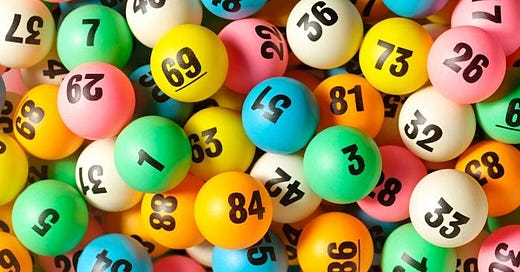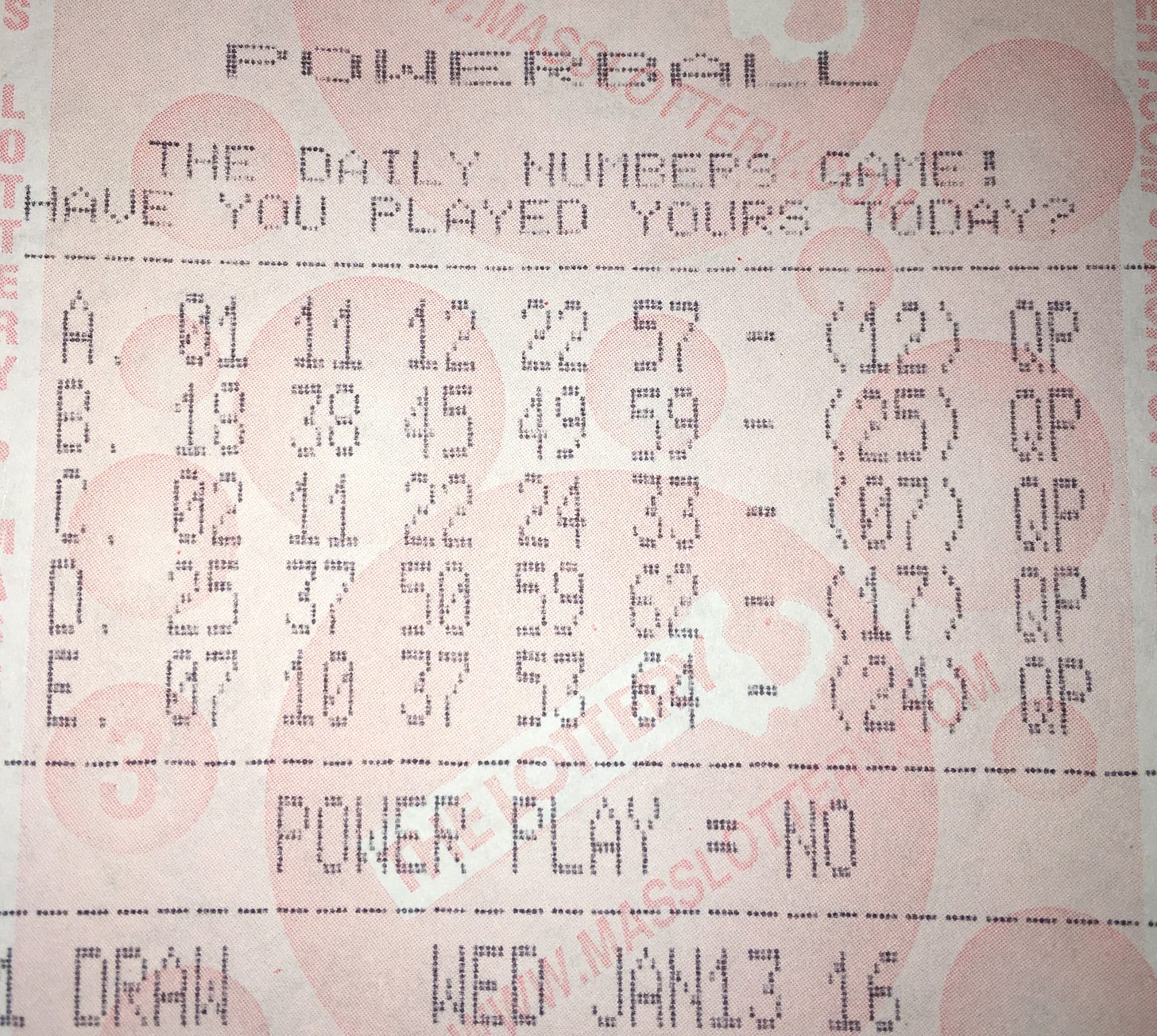I'm Playing Powerball...and Why You Should Too
With no jackpot winners this past weekend, the Powerball jackpot recently jumped to $1.4 billion—the largest in human history—for Wednesday evening's drawing. The standing Powerball record is $590.5 million, won in 2013 by a retiree in Florida. That record may be broken this week.
The huge jackpot has generated quite the buzz, with just about every media outlet talking about it. Most have highlighted the long odds: the chances of winning the jackpot are one in 292 million. But with a $2 ticket price, it would "only" cost $584 million to buy up every possible drawing for a guaranteed win. Given the jackpot is more than twice that cost, shouldn’t we go for it? Doesn't this mean the expected value of a ticket is greater than its cost?
Unfortunately, there are confounding factors. As ever-rational PBS Commentator Paul Solman points out, we need to keep two important factors in mind. First, the headline value of $1.4 billion (before taxes) only holds if winners take an annuity. If a jackpot winner took a lump sum, he or she would win, before taxes, $868 million. That's the present value of the jackpot's stream of annual payments.
And secondly, notes Paul, there are taxes. Uncle Sam will take around 40%, and many states and local governments will want their share as well. Even if you win in a tax-free state, the jackpot value falls to under the the breakeven value of $584 million. You also have to factor in the possibility that even if you do win the jackpot, others will win it alongside you, sharing your prize.
What are the chances of someone else winning? Well, that's based on the number of people playing, and this weekend's jackpot demonstrated that big jackpots draw big interest. At its peak before Saturday’s drawing, 600,000 tickets worth $1.2 million were being sold every minute. Through this frenetic activity, 75% of all possible number combinations were sold before last Saturday’s drawing. Yet no one won. Let's just say the math gets complex very quickly and requires data that I don't have; but it definitely reduces the expected value of your $2 ticket. There is also a positive adjustment we need to make, namely that you can win lesser prizes, but they don't really move the needle.
Despite this data, why am I buying tickets? Because the numbers miss a very obvious and valuable part of my decision calculus. It's fun and exciting! And it's a cheap thrill with limited risks. Buying tickets generates endorphins and the anticipatory joy of possibly winning (even though I know it's very unlikely) are worth well more to me than the $2 per ticket.
If you're still not convinced, why not play along with me? Here's a picture of the tickets I just purchased.
Here's what I ask: Note your emotional reaction when you check the winning numbers against my five tickets. And oh, if I've won and you'd like to find me, don't bother emailing or calling. Head to the Caribbean. You'll find me by the ocean with a cocktail in hand.
I don’t gamble in Las Vegas to win money—I expect to lose money, viewing it as the cost of entertainment. The same is true for me with the lottery. So as I play Powerball this week, I’m doing it for the rush, the minor escape from life's daily grind. I suggest you do so as well. You may enjoy it. And who knows, you may actually win something! Good luck, and have fun.
Vikram Mansharamani is a Lecturer at Yale University in the Program on Ethics, Politics, & Economics. He is the author of BOOMBUSTOLOGY: Spotting Financial Bubbles Before They Burst (Wiley, 2011). Visit his website for more information or to subscribe to his mailing list. He can also be followed on Twitter or by liking his Page on Facebook.





